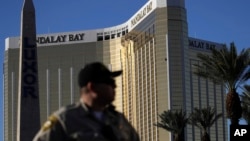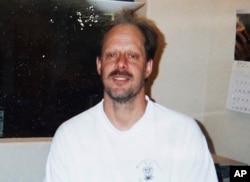The FBI has found no clear motive for the slaying of 58 people by a sniper firing down at an outdoor concert in Las Vegas in 2017, the agency said on Tuesday after a year-long investigation of the deadliest mass shooting in modern U.S. history.
According to an FBI report, the 64-year-old gunman, Stephen Paddock, was no different from many other mass shooters driven by a complex mix of issues, ranging from mental health to stress, who wished to die by suicide.
The report also found no evidence that any ideological or political beliefs motivated Paddock, who also wounded more than 800 in the shooting rampage on Oct. 1, 2017.
"There was no single or clear motivating factor behind Paddock's attack," the FBI's Behavioral Analysis Unit said.
Paddock acted alone when he planned and carried out the attack, firing more than 1,000 rounds during 11 minutes from the 32nd floor of the Mandalay Bay Resort and Casino. As law enforcement officers assembled in the hallway outside his hotel room, he fatally shot himself.
An important aspect of the attack was Paddock's desire to die by suicide as he suffered a decline in his physical and mental health and financial status, the FBI report said.
"Paddock concluded that he would seek to control the ending of his life via a suicidal act," according to the report.
He wanted to attain a degree of infamy through a mass- casualty attack and was influenced by the memory of his father, a well-known criminal, the report said.
Paddock displayed minimal empathy throughout his life and his decision to murder people while they were being entertained was consistent with his personality, according to the report.
As was his nature, he carefully planned the attack, buying an arsenal of guns and ammunition in a year-long spree and methodically researching police tactics and site selection. That work provided a sense of direction as his health declined.
He had no plan to escape the Mandalay Bay alive.
"Paddock took multiple, calculated steps to insure that he could commit suicide at a time and in a manner of his choosing," the report concluded, adding he used surveillance cameras and brought one handgun to the room that he used to shoot himself.







